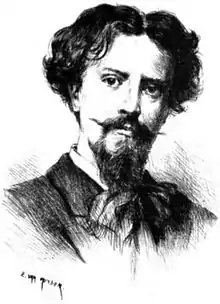
Eugène Brieux
Works
- Ménages d'Artistes (1890)
- Translated as Artists' Families by Clark (1918)
- L'Évasion (1896)
- Translated as The Escape by Eisemann (1913) IA
- Blanchette (1897)
- Translated as Blanchette by Eisemann (1913) IA
- Les Trois Filles de Monsieur Dupont (1897)
- Translated as The Three Daughters of M. Dupont by Hankin (1911) IA
- Maternité (1903)
- Les Avariés (1905)
- Translated as Damaged Goods by Pollock (1911) IA
- Novelized as Damaged Goods by Upton Sinclair (1913) IA
- La Robe Rouge (1904)
- Translated as The Red Robe by Reed (1915)
- Translated as The Red Robe by Miall (1916) IA
- La Foi (1909)
- La Femme Seule (1912)
- Translated as Woman on her Own by Charlotte Shaw (1916) IA
- Nos Soldats Aveugles (1917)
- Translated as Our Blinded Soldiers by Gladys Whiteside (1918)
Works about Brieux
- "Brieux" in The Social Significance of the Modern Drama, by Emma Goldman (1914)
- "Brieux, Eugène," in Encyclopædia Britannica (11th ed., 1911)
Some or all works by this author are in the public domain in the United States because they were published before January 1, 1927.
The author died in 1932, so works by this author are also in the public domain in countries and areas where the copyright term is the author's life plus 80 years or less. Works by this author may also be in the public domain in countries and areas with longer native copyright terms that apply the rule of the shorter term to foreign works.
This article is issued from Wikisource. The text is licensed under Creative Commons - Attribution - Sharealike. Additional terms may apply for the media files.